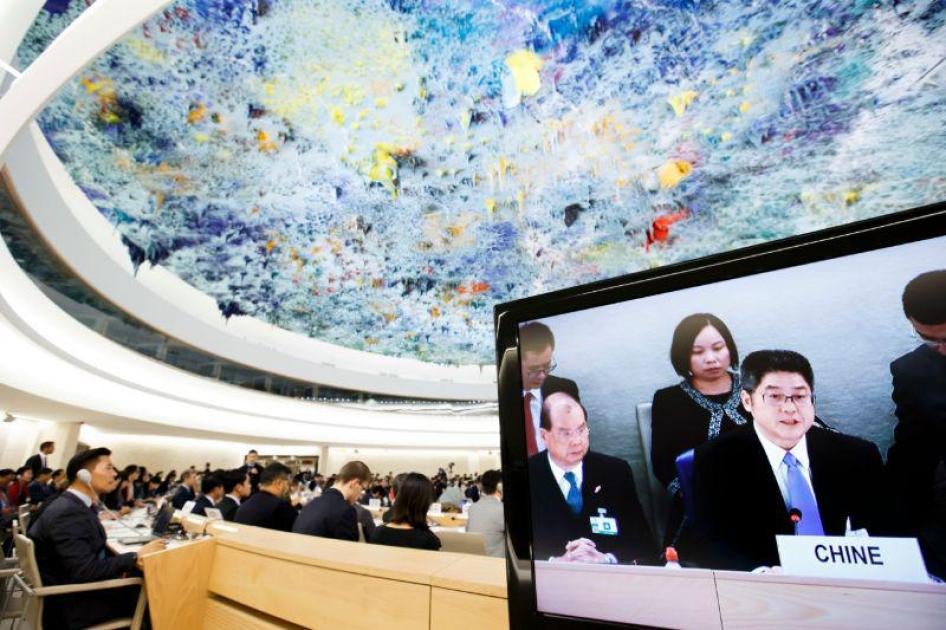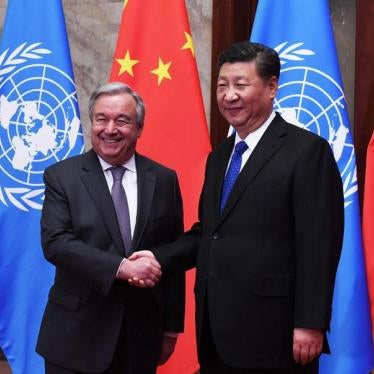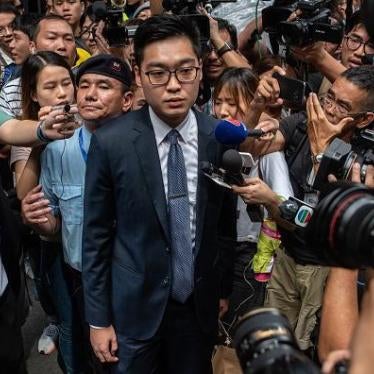According to senior Chinese diplomats addressing the United Nations Human Rights Council at China’s periodic review on November 6, Xinjiang is “very beautiful, safe, and stable,” and “a nice place.”
If only that were true!
The review of China’s human rights actions and policies featured plenty of profoundly dishonest claims by China. It lied about its failure to ratify core human rights treaties and the broad range of offenses punishable by death, the arrests of human rights defenders, and its record of thwarting international human rights institutions.
But the tidal wave of documentation from academics, journalists, and human rights organizations regarding rampant human rights violations in China’s northwestern Xinjiang region shows just how disingenuous the delegation’s Xinjiang claims are. There is little “stability” or “safety” for the approximately one million Turkic Muslims arbitrarily detained in “political education” camps in Xinjiang, spending their days being forcibly indoctrinated in Xi Jinping Thought.
Those outside the camps have no choice but to “welcome” government and Communist Party officials to stay in their homes, where family members’ behavior is under close surveillance. Human Rights Watch research documents pervasive restrictions on the practice of Islam in the region, ranging from confiscating copies of the Quran to prohibiting daily prayers.
At the Universal Periodic Review, 13 countries challenged China to close the camps, and some echoed the call from the UN High Commissioner for Human Rights to allow access to Xinjiang investigate the scope of abuse. More expressed concerns about restrictions on the freedom of religious belief and on ethnic minority groups.
But not a single government from an Organisation of Islamic Cooperation member country explicitly called out China for its shocking abuses of Muslims, making it easier for Beijing to paint the criticism as another “Western” conspiracy. Only Turkey acknowledged the problem, speaking about “confinement of individuals without legal grounds,” but without specific reference to Xinjiang. And some of those governments have been complicit in Beijing’s “Strike Hard” campaign – forcibly returning Turkic Muslims, particularly Uyghurs, to China, denying them safe passage to third countries, providing information about their identities to Chinese authorities. Few have even challenged Beijing for persecuting Turkic Muslims who have visited, studied in, or had family members emigrate to their own country.
It’s not clear why the defense of Muslims in China fell almost exclusively to Western governments. But an end to the crisis for that community will need intervention from a broad chorus. Will the Muslim-majority countries step up?









